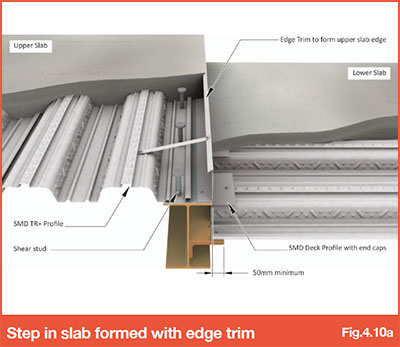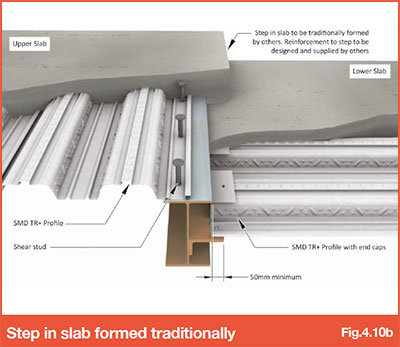Difference between revisions of "4.10 - Steps in slab"
From TGN Online
| Line 1: | Line 1: | ||
| − | |||
| − | |||
| − | |||
| − | |||
Where a step in the deck/slab level is required, this should be located at supporting beam positions, with angles provided to support the lower level decking. | Where a step in the deck/slab level is required, this should be located at supporting beam positions, with angles provided to support the lower level decking. | ||
| Line 27: | Line 23: | ||
| − | + | Go to '''[[4.11 - End caps|NEXT]]''' section | |
| − | + | ||
| − | + | ||
| − | + | ||
| − | + | ||
| − | + | ||
| − | + | ||
| − | + | ||
| − | + | ||
| − | + | ||
| − | + | ||
| − | + | ||
Revision as of 09:30, 21 March 2017
Where a step in the deck/slab level is required, this should be located at supporting beam positions, with angles provided to support the lower level decking.
Depending on the difference in level and requirement for slab continuity, the higher level slab may be formed using standard edge trim (refer to Fig 4.10a) or formed traditionally by following trades (refer to Fig 4.10b).
When developing the detail to be used, the buildability should be considered as the detail in Fig 4.10b would require a two stage concrete pour, with the lower level poured first.
Go to NEXT section



